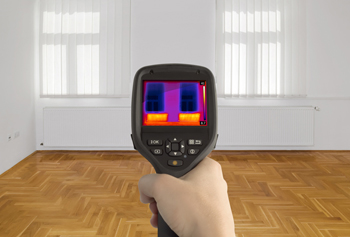 CFAES’s Eric Romich will look at the financial prudence of investing in on-farm solar energy as a speaker at the Powering Michigan Agriculture Conference March 9 at Michigan State in East Lansing. Learn more here. Register to attend here. Romich is an energy development field specialist with CFAES’s outreach arm, OSU Extension. East Lansing is about 120 miles northwest of Toledo.
CFAES’s Eric Romich will look at the financial prudence of investing in on-farm solar energy as a speaker at the Powering Michigan Agriculture Conference March 9 at Michigan State in East Lansing. Learn more here. Register to attend here. Romich is an energy development field specialist with CFAES’s outreach arm, OSU Extension. East Lansing is about 120 miles northwest of Toledo.
energy savings
‘We’re downright obsessive’ about energy efficiency. Hear how you can be, too
 Green is good. Renewable rocks. But don’t forget energy efficiency, says the organizer of an upcoming event at Ohio State. Continue reading
Green is good. Renewable rocks. But don’t forget energy efficiency, says the organizer of an upcoming event at Ohio State. Continue reading
Sustainable housing, energy savings: What can we learn from this place?
 Ohio State’s Mark Walter speaks this Thursday (Feb. 23) on the university’s enCORE solar home (video 3:29), which placed fifth out of 20 international teams in last year’s U.S. Department of Energy Solar Decathlon. (Photo: Jim Tetro/DOE/Solar Decathlon.)
Ohio State’s Mark Walter speaks this Thursday (Feb. 23) on the university’s enCORE solar home (video 3:29), which placed fifth out of 20 international teams in last year’s U.S. Department of Energy Solar Decathlon. (Photo: Jim Tetro/DOE/Solar Decathlon.)
Home energy audit well worth it
I first heard about home energy audits last summer when I attended an energy efficiency presentation by ATI professor Allen Zimmerman. (His talk was really thought-provoking — and he’s willing to speak to groups small and large. Contact him at zimmerman.7@osu.edu to see about his availability).
Among all the pieces of great advice Allen gave, item No. 1 was to get a home energy audit. It might cost $250 or so, but Zimmerman said in most cases it’s well worthwhile. I procrastinated… but the seed was planted.
Today, I had an extensive home energy audit conducted for just $50, thanks to Columbia Gas of Ohio. Was it worth time and nominal expense? You bet. Here’s what auditor-extraordinaire Jacque (pronounced Jackie) Chaney found:
- We have a minor gas leak in the basement. (Is any gas leak “minor”?) Unbelievably, she said it’s not unusual. She said her 90-year-old house had nine leaks when she checked it. I asked her why we couldn’t smell any gas, and she said it’s likely because the pipe is very close to the floor joist where there’s some air flow, and the gas is probably being swept outdoors. Lucky us. The plumber is on his way to fix that thing. Minor or not, I don’t like the idea of any gas leak in my house.
- Our attached garage has no insulation in the ceiling. Ah, that’s why our den, sitting innocently above the garage, is so drafty. Insulation will cost about $250, but if we get it done within six months, Columbia Gas will foot some of that bill — even more if we get it done within three months.
- There doesn’t appear to be insulation in the 12-inch overhang at the front and back of the house. It will cost about $40 to get that fixed, for an annual energy savings amounting to about $9 a year. Not a bad payback period. Columbia Gas will pay a good portion of our cost, too, cutting the payback period even further. This is a great program.
- We have some air leaks. Every house does, but some easy fixes will reduce our energy use and make the homestead (can you call a house built in 1994 a “homestead”?) more comfortable. We’ll seal up the air leaks in the basement (where the floor joists meet the foundation, and where a water pipe goes outdoors for the garden faucet); underneath the window sills (Jacque said these should be re-caulked every 10 years or so); and at switchplates and outlets on our outside walls (ready-made foam insulators are available at hardware, home and discount stores). Note: One way to spot an air leak around insulation (such as what you might see in the basement) is to look for gray discoloration on the fiberglass. That means air is being filtered through the insulation. Who knew? I thought it was dust.
- We have about 12 inches of blown wool insulation in the attic, giving an insulating factor of about R-30. While it’s not the R-42 recommended, getting there would cost about $400 and only would save $11 a year. Still, it might make the upstairs a bit more comfortable. And it would save some wasted energy.
In addition to the audit, Jacque installed two free high-pressure/low-flow showerheads (reducing water usage from 2.5 gallons per minute to 1.75 gpm). Plus, she would have installed a free programmable thermostat if we didn’t already have one.
The discounted home energy audit program is open to Columbia Gas of Ohio customers. There’s been quite a bit of publicity on this, and thus a long waiting list (I called in November to get a Feb. 10 audit).
If you’re not with Columbia Gas, other utilities have similar programs. For example, Dominion East Ohio gas company and American Electric Power offer similar programs. Electric co-ops also offer subsidized audits. Take a look online or call your utility to find out what’s available for you. Or, find your own certified energy auditors at www.resnet.us or www.bpi.org. It very well could be worth your dime — and save fossil fuels at the same time.